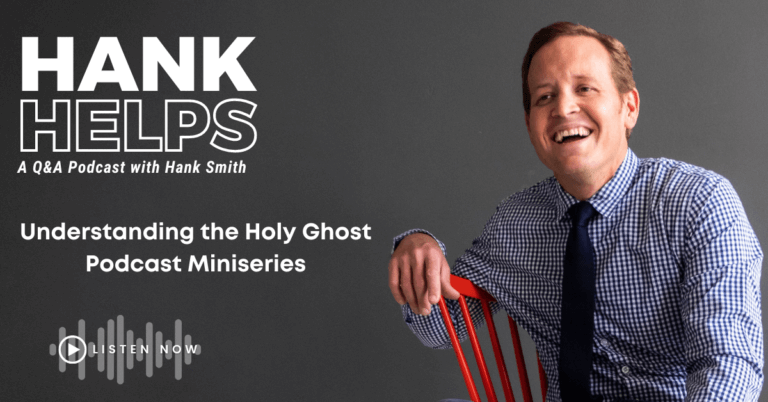A guest post by Whitney Permann from Mercy River
Updated 9/2/2022
A few weeks ago, I looked around my congregation during church. I was so surprised by how many people actually weren’t singing!
I know that some people sing out loud while others feel more comfortable singing within their hearts. I get it. I really do. But then why do the Psalms repeatedly tells us to “sing to the Lord”? (Psalm 98:5)
What does this mean for those who aren’t a great singer?
I’m glad you asked.
Here are 5 reasons you should sing in church…even if you “can’t” sing.

Singing is good for the brain.
Even if you don’t like to do it, singing is still good for your brain.
Singing uses both parts of the brain and releases oxytocin, dopamine, and endorphins (anti-depressants) which promote unity, trust, and joy.
It connects us to got and each other.
(God knows a little something about the brains and what it needs. 😆)
 You might also like “Why Do We Sing So Much at Church?” A FollowHim Favorites by Hank Smith and John Bytheway
You might also like “Why Do We Sing So Much at Church?” A FollowHim Favorites by Hank Smith and John Bytheway

Music activates the spiritual attention centers of the brain. As a bonus, music is proven to outlast memories–especially as we age and so when we sing hymns, the lyrucs become written on (and stored in) our hearts.
Truly, singing makes “the word of Christ dwell in you richly” (Colossians 3:16).
 You might also like “Getting Your Classroom to Sing” A Teaching Helps Podcast Episode by Hank Smith
You might also like “Getting Your Classroom to Sing” A Teaching Helps Podcast Episode by Hank Smith

Singing hymns is an act of fellowship. It’s not about you or your voice. Instead, make it about others.
When you sing, you add YOUR witness to the group.
You can lift and build those in your church family who are hurting…all from the safety of your pew.
 You might also like “Hear Him: A Musical Fireside” by Wayne Burton
You might also like “Hear Him: A Musical Fireside” by Wayne Burton

When you sing, you push pride aside and stop worrying “what do others think?”
And simply worship.
You show God you gratefully honor Him–more than your discomfort.
You offer yourself, no matter how flawed.
That is worship!

No one is listening to you sing.
Hint: Good singers love the sound of their own voice. You can sing by them because they are lost in their own little performance.
But truly, it’s freeing to drop insecurities. Let go of what you “think people think”.
So just sing for Jesus. Don’t worry about anyone else.
Just sing.







What do you do if you really physically cannot sing? I don’t mean that I don’t think I sound good or that I am untrained, I mean I physically cannot produce most of the pitches required to sing the hymns. I used to be able to, but after multiple series of back-to-back-to-back respiratory infections, I only have about an octave of usable range, and it is not a very useful octave. My usable range is about from G3 to G4, possible A4 on a really good day. Anything higher, my vocal chords refuse to produce the sound. It isn’t that the pitches are squeaky or weak or off-pitch, they are completely nonexistent. I. cannot. produce. the. higher. pitches. at. all. This has been the situation for the past 5 years, so it is not just a temporary effect of a recent infection. If my vocal chords were going to recover, I would have expected them to do so long before now. The options, as I see it, are:
1) jump between octaves to sing pitches within my very limited range. That is, sing notes written in the range of G3 to G4 at written, and then jump down an octave on higher notes.
2) Sing the alto line, which is usually notated lower.
3) Lip sync. Stand there moving my lips to the words, but not making any sound.
4) Do nothing. Just stand there neither singing, nor pretending to.
I have tried method 1, but it feels really awkward and weird. Option 2 is probably the best and most satisfying, but I am not always able to pick out the alto line, and I have no sight singing skills. I don’t know how to make up my own parts ad lib, so that possibility is out. If I can hear the notes from the piano, I can manage, but sometimes I just can’t make them out. Also, sometimes even alto lines go way too high for me, and some hymns don’t have parts, just a unison line that is inevitably far too high. Mostly, I end up with method 3 and just lip sync. I figure if I am at least mouthing the words, I am worshipping with them in some way. I truly wish I could sing, even poorly, but I cannot, and it rips me apart inside every single Sunday to listen to everyone else singing and know that I cannot participate in the same way.
Sing what you can as best you can. Your voice will be as the “widows mite” whom the Lord said, “Of a truth I say unto you, that this poor widow hath cast in more than they all:
For all these have of their abundance cast in unto the offerings of God: but she of her penury hath cast in all the living that she had”.
Thank you for being vulnerable and sharing your story. Your voice because of your limited capacity, is worth more to the Lord than all those who sing with no thought or effort. Remember, lift up your heart and sing. If you do that, your voice will me louder and more beautiful than most.